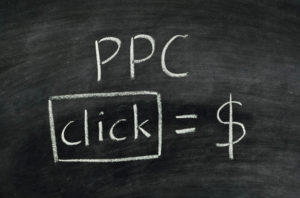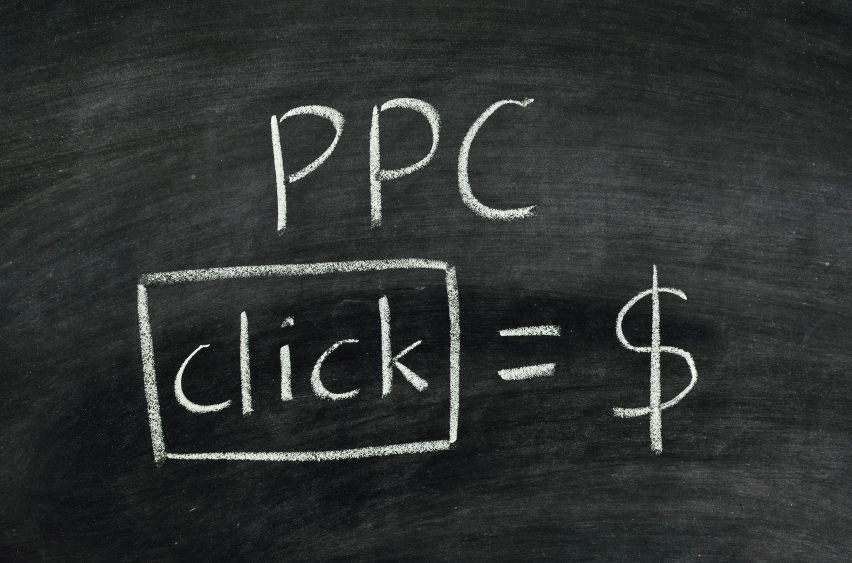 I’ve helped many small businesses successfully build Google Adwords Campaigns. However, most have tried it on their own and failed. Here are 20 of the most common reasons why.
I’ve helped many small businesses successfully build Google Adwords Campaigns. However, most have tried it on their own and failed. Here are 20 of the most common reasons why.
When I meet with a small business for the first time and suggest Google Adwords they normally say, “I tried that, spent a lot of money and it didn’t work”. Typically, they received Google’s direct mail post card and set up an account. They then followed the instructions and sat back and waited. Nothing happened, except their credit card got billed!
In my opinion, Google Adwords is an awesome tool in the right hands. It’s a terrible waste of money for an inexperienced user. I’ve personally spent hundreds of hours learning and reading about Google Adwords Campaign Management and passing Google’s Adwords Certification. Plus, I’ve had tons of real world marketing experience from sales to print to digital. Here are the biggest mistakes I see when a novice sets up a Google Adwords Account.
1. Ads aren’t targeted enough.
Ads should be laser focused. If you’re selling shoes for example a general “buy shoes online” won’t be as successful as “Men’s Brand XXX Shoes”.
2. Keywords aren’t grouped into effective Adgroups.
An Adgroup can serve up similar ads and send the traffic to the right page. In the above example, “Men’s Brand XXX Shoes” should have keyword variations on that theme and send the traffic to a category page on your site that only has “Men’s Brand XXX Shoes” “Ladies Brand XXX Shoes” should be a different Adgroup and send the traffic to a different landing page.
3. Sending the traffic to the homepage.
Most novices send all the ad traffic to their homepage. Wrong! In the above examples Adgroups should be sent to a corresponding landing page or category page that is targeted directly at the ad content. Let’s say you’re a plumber and you have a lot of keywords around “Plumbing Repair” you also have keywords around “New Plumbing Installations”. Ideally, these would be in two different Adgroups
4. Poor landing pages.
Google Adwords should be sent to a landing pages designed to either capture leads, or sell a product with “buy now”. In the shoe example, if someone is looking for “Men’s Brand XXX Shoes”, the web page you send the visitor to should allow the person to very easily buy “Men’s Brand XXX Shoes”. If you’re trying to capture leads, then your landing page should have a call to action and sign up form. Otherwise, what’s the point?
5. Non-buying intent keywords.
The keywords you’re bidding on should have buying intent. For example, in our plumbing example, “24-hour plumber” has different buying intent than “plumbing”. Someone who searches “plumbing” may be a do-it yourselfer who wants an instructional video. In contrast, someone who searches for “24-hour plumber” probably has a plumbing emergency and needs a plumber!
Want a FREE Review of Your Google Adwords?
iGo Sales and Marketing is a Google Partner Agency and one of our qualified experts certified by Google will do a FREE account review for you. It doesn’t get better than free!
[maxbutton id=”1″]
6. Bidding too high.
For some reason novice users are overly focused on “being number one on Google”. In Adwords, being the number one ad is expensive and you’ll burn through your daily budget with just a few clicks. What you really want is the most traffic for the budget you have. If this means being in 5th position, so what! You got the most traffic at the lowest price.
7. Not setting up separate Display and Search campaigns.
By default most people set up a search and display campaign. For many reasons a display campaign may not be right for you. You can easily blow your budget on display advertising getting poor quality traffic with few conversions. You should separate Search and Display and only use Display ads if they convert at a reasonable cost.
8. Not setting up conversion tracking.
If you don’t have a web form or “buy now” button that feeds the data back to Google that a conversion has taken place, how would you ever know if it was working? Also, you’d never know which keywords are the most profitable and which ones cost a lot of money but don’t result in conversions. Setting up tracking is essential.
9. Not setting up time of day advertising.
Let’s say you’re a locksmith that is open from 9-6pm. If you’re serving up ads 24 hours a day it’s a waste if someone calls you a t 7pm and get’s voice mail. Give some thought to when you clients might be looking for you and when you are able to respond.
10. Adding too many keywords.
If you have an unlimited budget, this won’t be a problem, but most small businesses have a budget. If you set up hundreds of keywords to start off with, you’ll never get enough traffic on each one to judge whether it’s profitable or not. Start with a dozen or two good keywords and when you get a feel for what’s working, eliminate some and add some more.
11. Ads aren’t geographically targeted.
If you’re a local business that only serves within 20 miles of your business, why would you serve up ads across the country? I doesn’t make sense. Most inexperienced Adwords users don’t know how to properly geo-target their ads.
12. Not setting up click to call extensions.
An estimated 30-40% of traffic comes from mobile these days. If you don’t have click to call enabled you missing the opportunity for users to click on your phone number in your add to call.
13. Not setting up sitelinks.
You can include links in your ads to various pages. This is useful if users want to go directly to “contact us” or better yet “Items on sale”
14. Not setting up negative keywords.
Many small businesses don’t even know you can do this! In the plumbing example if you bid on the keyword “plumbing” you could conceivably get someone looking for “plumbing schools” or “plumbing tools”, etc. You would want to set it up not to display ads in these cases. You’ll just get a poor click through rate and/or wasted clicks.
15. Not using exact match or phrase match keyword options.
Back to the plumbing example, “plumbing “ is a very broad keyword. If you set up “[plumbing repair]” as an exact match keyword you would get less traffic but… it would be more qualified, you’d get a better quality score so you’d pay less per click and probably get a higher ad rank, which means for the same bid you’d appear higher on the page.
16. Not setting up location extensions.
If you’ve set up a Google+ local business page people who view your ad can get a link to your local page where they can find reviews of your service.
17. Not understanding ROI.
Adwords only “works” if it returns positive return on investment. If you spend $500 on Adwords you better at least get $500 back in margin from leads generated from your ads. Here’s t the math you need to know:
Cost per click X #clicks = SPEND
#Leads/#clicks = CONVERSION RATE (typically 1-3%)
SPEND x CONVERSION RATE = COST PER LEAD
Then you have a secondary conversion process where you convert you leads in customers.
#leads/#customers = 2nd CONVERSION RATE
COST PER LEAD/2nd CONVERSION RATE = COST PER NEW CUSTOMER
COST PER NEW CUSTOMER has to be less than Average Gross Margin Generated per new customer. If it is, you should set an unlimited daily budget and take all the traffic Google will give you. This is the promised land of Google Adwords marketing.
18. Not using the keyword tool.
Many inexperience small business users just add a bunch or random keywords they think people would search for. Google has an awesome keyword tool that helps users pick keywords and shows traffic, estimated cost per click and you can even simulate traffic and average cost per click on the group of keywords you’ve chosen.
19. Not adjusting bids for mobile.
Many businesses are more likely to be found on mobile, like restaurants, locksmiths, household repair, etc. If this is the case, you can increase your bids for mobile ads over other devices. On the other hand if you’re selling a complex product like computers, most people prefer to research their options on a traditional computer first before they buy. In this case you’d want to decrease bids for mobile devices.
20. Not taking advantage of Remarketing.
Remarketing is too sophisticated for many small business owners to set up. However, when set up properly, a website visitor can be served up ads for your business on other websites for the next 30 days. This increases the chance of the visitor becoming a lead because you’re likely to get a second chance at it. Overall this normally decreases the total cost per lead on with your Adwords account.
Bonus
21. Not hiring a Professional
There are literally thousands of pages of resources from Google on how to use and set up Google Adwords. It can be a case of information overload. If you’re unfamiliar with the best way to set up your account Google’s wealth of information can seem daunting.
If you’d like a complete review of your Adwords account or just like one set up by an expert in Google Adwords Campaign Management, please contact me at iGo Sales and Marketing. I’m Adwords certified and my company is a Google Partner. I can help you get the most out of your Adwords spend.
[maxbutton id=”7″]

